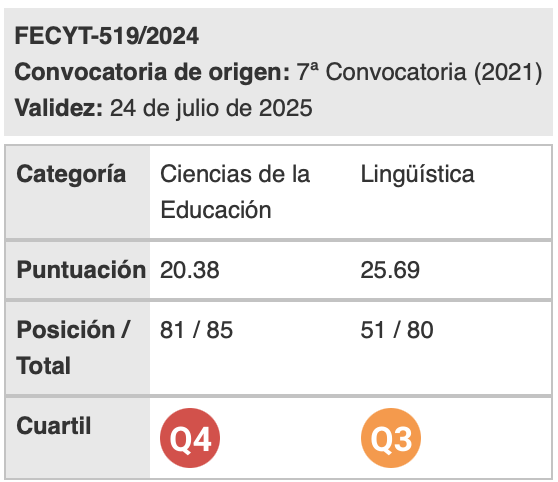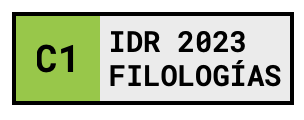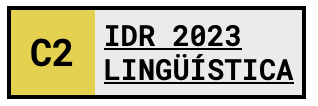International participation and discursive choices in the digital genre of the travel blog comment
Keywords:
travel blogs, blog comment, ELF communication, digital genres, reconfigured genresAbstract
Current ways of informal globalized communication involve digital genres facilitating increasingly dialogical, immediate interactions. One representative example is found in blogs, where users’ interaction is enabled through the genre of the comment to a previous post. In a corpus of 15 entries from 5 travel blogs, 318 comments have been analysed to study international participation in the blogosphere by different English users, native and non-native speakers. First, the quantity and length of their contributions are studied to consider the possible impact of their linguacultural background in ELF digital communication. Second, a discursive data-driven analysis of travel blog comments is provided, highlighting its most salient features, in order to better comprehend this specific digital discourse and to favour international successful participation in such a web-mediated environment.
Downloads
References
Baker, W. (2015). Culture and Identity through English as a Lingua Franca: Rethinking Concepts and Goals in Intercultural Communication. Berlin: De Gruyter Mouton.
Bakthin, M. (1986). Speech Genres and Other Late Essays. Texas: University of Texas Press. Bhatia, V.K (2004). Worlds of Written Discourse: A Genre-Based View. London: Continuum.
Biber, D., Johansson, S., Leech, G., Conrad, S. & Finegan, E. (1999). Longman Grammar of Spoken and Written English. Harlow: Pearson Education Limited.
Bolton, K. & Kachru, B.B. (2006). World Englishes: Critical Concepts in Linguistics, Volume 5. London: Routledge. Crystal, D. (2006). Language in the Internet. Cambridge: Cambridge University Presss.
Goethals, P. (2013). Travel blogs written by non-professionals: An exploratory analysis of a tourism genre. Ibérica 25, 147-170.
Grafton, K. (2009). Situating the public social actions of blog posts. In J. Giltrow & D. Stein (Eds.) Genres in the Internet: Issues in the Theory of Genre (pp. 85-112). Philadelphia: John Benjamins.
Heath, M. (2018). Orthography in social media: Pragmatic and prosodic interpretations of caps lock. Proceedings of the Linguistic Society of American 3(55), 1-13.
Herring, S. (2008). Virtual community. In L.M. Given (Ed.), Encyclopaedia of Qualitative Research Methods (pp. 920-921). Los Angeles: Sage.
Herring, S. (2012). Grammar and Electronic Communication. In C. Chapelle (Ed.), Encyclopedia of Applied Linguistics. Volume 6. Malden: Wiley-Blackwell.
Herring, S. (2013). Discourse in Web 2.0: Familiar, Reconfigured, and Emergent. In D. Tannen & A.M. Tester (Eds.) Discourse 2.0: Language and New Media (pp. 1-25). Washington: Georgetown University Press. 1-25.
Heyd, T. (2016). Digital genres and process of remediation. In A. Georgakopoulou & T. Spilioti (Eds.), The Routledge Handbook of Language and Digital Communication (pp. 87-102). London: Routledge.
Hyland, K. (2005). Metadiscourse: Exploring Interaction in Writing. London: Continuum.
Jenkins H. (1992). Textual Poachers: Television Fans and Participatory Culture. London: Routledge.
Jenkins H. (2006). Convergence Culture: Where Old and New Media Collide. New York: New York University Press.
Lomborg, S. (2011). Social media as communicative genres. MedieKultur: Journal of Media and Communication Research 51, 55-71. Mauranen, A. (2012). Exploring ELF: Academic English Shaped by Non-native Speakers. Cambridge: Cambridge University Press. Mey, J.L. (2018). How social is the Internet? A pragmatic view. Internet Pragmatics 1, 13-28
Myers, G. (2010). The Discourse of Blogs and Wikis. London: Continuum.
Page, R. (2015). Moving between the big and the small: Identity and interaction in digital contexts. In A. Georgakopoulou & T. Spilioti (Eds.), The Routledge Handbook of Language and Digital Communication (pp. 403-407). London: Routledge.
Page, R. (2012). The linguistics of self-branding and micro-celebrity in Twitter: The role of hashtags. Discourse & Communication 6 (2), 181-201.
Pascual, D. (2018). Analysing digital communication: Discursive features, rhetorical structure and the use of ELF in travel blog posts. Journal of English Studies 16 , 255-279.
Qian, H. & Scott. C.R. (2007). Anonymity and self-disclosure on weblogs. Journal of Computer-Mediated Communication 12, 1428-1451.
Quirk, R., Greenbaum, S., Leech, G. & Svartvik, J. (1985). A Comprehensive Grammar of the English Language. London: Longman.
Rhysina-Pankova, M. & Kugele, J. (2013). Blog: A medium for intellectual engagement with course readings and participants. In D. Tannen & A.M. Trester (Eds.), Discourse 2.0: Language and New Media (pp. 183-200). Washington: Georgetown University
Press. Seidlhofer, B. (2011). Understanding English as a Lingua Franca. Oxford: Oxford University Press. Swales, J. (2004). Research Genres: Explorations and Applications. Cambridge: Cambridge University Press.
Downloads
Published
How to Cite
Issue
Section
License
Authors who publish with this journal agree to the following terms:
- Authors retain copyright and grant the journal right of first publication with the work simultaneously licensed under a Creative Commons Attribution License that allows others to share the work with an acknowledgement of the work's authorship and initial publication in this journal.
- Authors are able to enter into separate, additional contractual arrangements for the non-exclusive distribution of the journal's published version of the work (e.g., post it to an institutional repository or publish it in a book), with an acknowledgement of its initial publication in this journal.
- Authors are permitted and encouraged to post their work online (e.g., in institutional repositories or on their website) prior to and during the submission process, as it can lead to productive exchanges, as well as earlier and greater citation of published work (See The Effect of Open Access).

Revista de Lenguas para fines específicos is licensed under a Creative Commons Reconocimiento-NoComercial-SinObraDerivada 4.0 Internacional License.

























